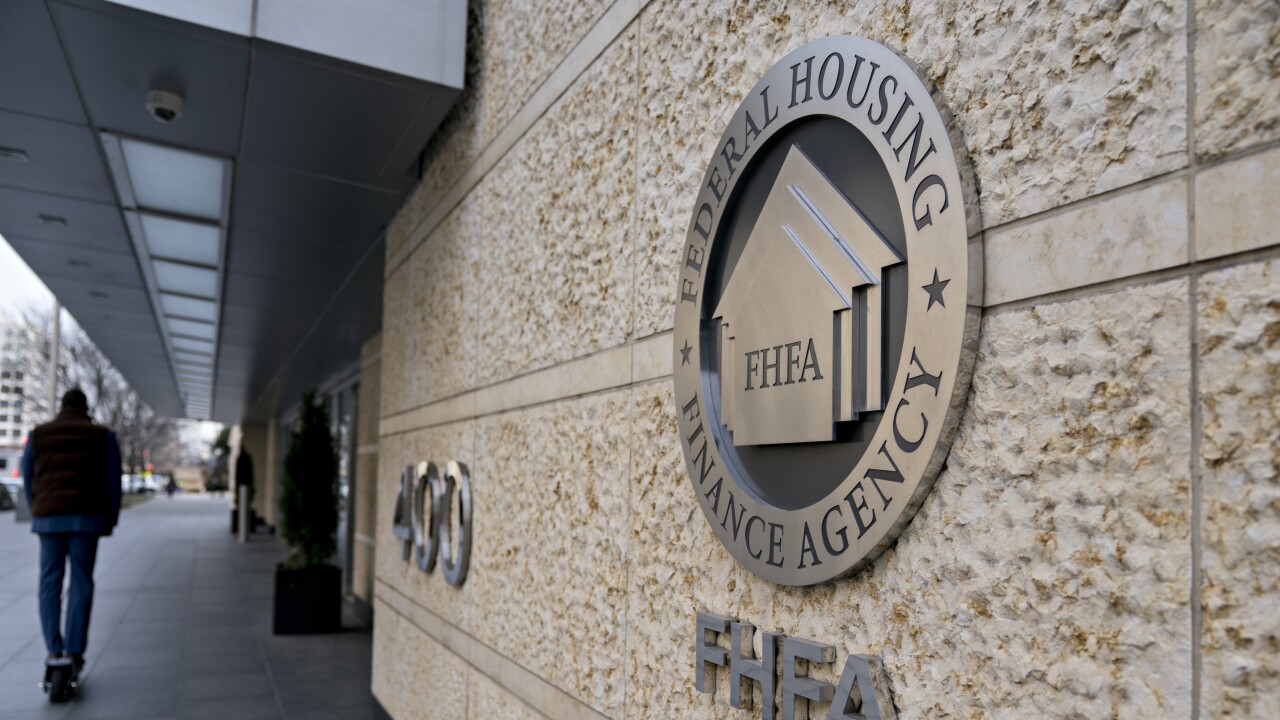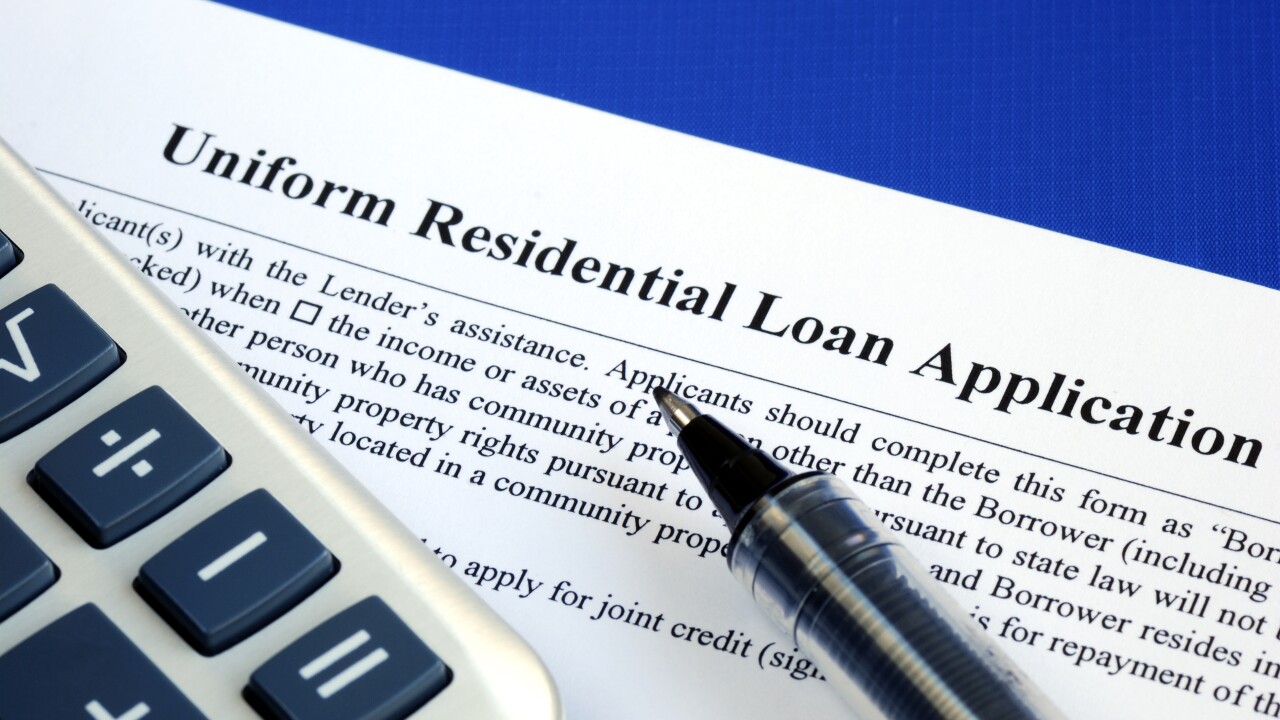-
Some housing numbers have been weaker than expected because affordability remains relatively low, outweighing slightly higher refinancing that has an upside for lenders but a potential downside for servicers.
August 22 -
Automating rent-based underwriting for single-family loans and offering incentives for multifamily borrowers who accept housing vouchers are just two ways Fannie Mae and Freddie Mac are tackling the challenge of equitable housing.
August 22 -
New capital standards the government bond insurer added were lower than the ones in previously proposed rules that had riled lenders and servicers.
August 17 -
The Federal Housing Finance Agency wants to change some of the government-sponsored enterprises' targets in ways that could create more low-income rental units as higher costs squeeze tenants.
August 16 -
A significant divergence between the FHFA and the Ginnie Mae issuer rules could greatly disrupt the secondary market — and that is precisely the outcome that now faces the mortgage industry, writes the chairman of Whalen Global Advisors.
August 15 Whalen Global Advisors LLC
Whalen Global Advisors LLC -
Payment for the whole loan and servicing-rights trading platform will be a mix of cash and stock, with the price and closing of the deal subject to certain contingencies.
August 15 -
The REIT did not issue a securitization in the period because of the upheaval, but found a more receptive marketplace in July.
August 10 -
Mortgage companies will need to obtain and maintain relevant data on loans starting in March of next year even if they are only handling payment-related activity, according to the Federal Housing Finance Agency.
August 10 -
The new leaders named at the company highlight what appears to be some heavy recruiting from the ranks of executives who previously worked for a government-sponsored enterprise or a GSE joint venture.
August 9 -
The changes, which appear to be separate from a controversial nonbank proposal that's pending, will reduce red tape for credit unions and housing finance agencies and clarify a calculation for loans eligible for repurchase.
August 5 -
The company is withdrawing from consumer-direct lending and making other reductions given that widening spreads failed to offset savings from aggressive layoffs and gains in servicing advisory services.
August 5 -
The non-qualified mortgage company allegedly failed to follow through on approximately $38 million it contractually agreed to buy.
August 3 -
This pool was part of the government-sponsored enterprise's RPL3-2022 transaction but unlike the other two portions, it was not awarded in the initial announcement two weeks ago.
August 1 -
Net interest income was the driver, as increases from investments more than offset a decline related to its guaranty book of business.
July 29 -
The decline was driven by a $307M provision to cover potential credit losses, primarily from its single-family business.
July 28 -
The mortgage investor reported core earnings per share slightly below estimates and a loss in comprehensive income but may ultimately outperform competitors, analysts said.
July 25 -
Low-income housing tax credits that incent the creation of affordable apartment units have provisions that make buildings less susceptible to damage from natural disasters, but they’re not consistent, Freddie Mac found.
July 22 -
Earnings posted by the two bank holding companies show increased production on a quarter-to-quarter basis, although gain on sale sank at both.
July 22 -
But these expenditures are still expected to increase by over 10% compared to 2021, which is more than double the 5% historical average, the Joint Center for Housing Studies of Harvard University said.
July 19 -
The agency also put out a request for public comment on the role of fintech in housing finance.
July 18














